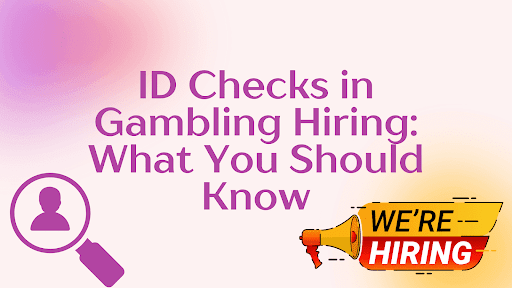With the development of Internet technologies and the availability of various gadgets, people from almost all over the world register at hundreds of online casinos and access their favorite games without leaving their homes.
This industry has always been about big money. Numbers speak for themselves: the size of a global gambling market reached a dizzying $702,45 by the end of 2023. Given the current CAGR of 56,4%, this indicator will be about $765,89 by the end of 2027.
Unsurprisingly, this industry attracts not only regular gamblers but also fraudsters. Malicious actors may steal users' personal data, gain access to their accounts, illegally withdraw funds, launder money and so on.
Legal casinos implement AML/KYC rules to prevent this, which require players to verify their ID, source of money they deposit, physical address, etc. Thus, casinos understand their clients, prevent minors from gambling, and contribute to responsible gambling.
The Significance of ID Checks
As mentioned above, legal gambling sites must implement ID verification to comply with Responsible Gambling rules. It protects vulnerable players with gambling addiction and helps them keep control over their behavior. Also, ID checks are a must within the framework of the license a particular casino gets.
A casino may get different licenses depending on the jurisdiction it is going to operate (UKGC, MGA, etc.), but they all require sites to check who their clients and employees are. During the ID check, clients must fill in up-to-date info about their bank statements, physical address, passport details, and more.
Also, they must upload scans or photos of their documents to prove that the data is relevant. This significantly decreases the chance of fraud. Of course, you can also find sportsbooks with no identity verification on NonGamStopBetting.org and check their reviews. They are much easier to access and start playing with real money. But it does not mean that they are not secure. Many of them operate legally, offer internal self-exclusion programs and more.
Legal and Regulatory Requirements
Regardless of the country where the casino operates and the specifics of the regulatory framework, ID checks play a decisive role in compliance with the rules and responsible gambling practices.
The very fact of providing personal data already has certain risks. That is why legally operating casinos always inform clients about protecting their personal data, guaranteeing sensitive data storage (often on a dedicated server), and a ban on their transfer to third parties (unless the user gives consent). Each country comes with specific legislative framework that regulates this process. Here are some examples.
- EU: The General Data Protection Regulation, The Consumer Rights Directive.
- USA: Bank Secrecy Act (BSA).
- Australia: Gambling Act 2001, the National Consumer Protection Framework.
If you are looking for more details, you can check them in the “Privacy Policy” section of a particular casino.
ID Verification Methods
A modern technological level allows casinos to implement different methods of checking IDs. Among widely used methods are biometrics and background checks. Each approach has its pros and cons, which is why casinos often implement their combination.
Biometrics
Biometric ID checking is among the advanced approaches that mostly use fingerprints or (and) facial recognition. Using this approach, players can pass the process in a few seconds without inputting passwords.
This boosts the user experience and builds clients’ loyalty. On the other hand, this approach is not ideal. For example, it can show false negative and positive results. This delays the verification process and often requires the casino to involve its experts to solve the problem manually.
Background Checks
This approach is often used to check not only clients but also employees of the gambling platform. It is a perfect option to learn more about the individual's work, education, possible criminal proceedings, etc.
Establishing and filtering potential risk factors are definitely the main advantages of this method. As for pitfalls, it requires the involvement of additional resources. Moreover, not all people are ready to agree on it because of security concerns.
The Role of Responsible Gambling
By checking IDs, casinos help create not only a safe playing environment but also encourage a responsible attitude to the gambling process. KYC/AML protocols help identify people who are in self-exclusion databases. Further, they may block their access to gambling content.
There are 2 main perks here:
- Breaking the vicious cycle;
- Regaining control over behavior.
Moreover, it prevents minors from playing and helps exclude fraudulent activity (for example, the creation of additional accounts, money laundering, etc.). When players understand that the platform is responsible for security issues, it strengthens their trust in the brand and increases loyalty. Thus, it is a win-win situation.
Industry Best Practices
Top-notch gambling platforms that show the best ID check practices often use various methods. Among the methods it implements are the following:
- Identity Verification Services to exclude any risk of fraud or potential identity theft.
- Know Your Customer (KYC) protocol to verify identity within the frameworks of regulatory requirements.
- Biometrics (combination of fingerprint scanning and facial recognition) to add an extra layer of security.
- Streamlined verification tools to minimize the probability of human error and save time on manual checking and reduce all the risks.
How to Ensure Fair Employment
With the help of ID verification, casinos ensure honest employment and create a secure gaming environment for customers. It is the same important component as checking employees’ hard and soft skills.
The completeness of information about a specific person contributes to the necessary diversity and adequate recruitment. As a result, all potential employees have equal competitive opportunities, which ensures a fair and transparent hiring process. This increases trust in the platform and its attractiveness in the eyes of both customers and employees.
Conclusion
ID checks are an integral part of the work of any casino that has a license and operates legally. This process makes it possible to find out the necessary information about a person, including their criminal history, place of residence, passport data, and so on.
This approach helps highlight key risks and prevent potential losses from fraudulent activity. It is also one of the mechanisms of a fair hiring process where every potential employee is in the same conditions as always discussed at industry events.






